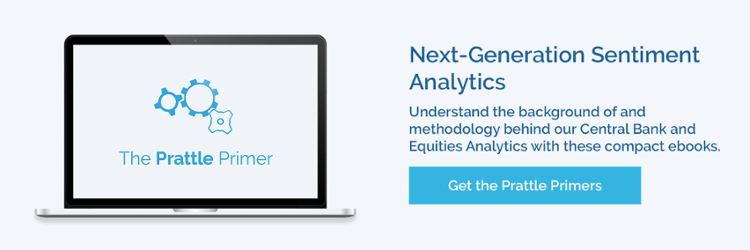This is the 6th of a 6 part series on how cutting-edge text analysis technology is helping investors mitigate the detrimental effects cognitive biases can have on their decision-making.
Chess and the Future of Finance
While the alpha-generating potential of AI technologies may excite many in finance, it can be hard to quash the nagging feeling that a new app may eventually drive some of our coworkers out of their jobs. This notion is hardly new. When world chess champion Garry Kasparov lost to Deep Blue twenty years ago, many felt it was the first sign of the last days of human intelligence.
…losing to a computer wasn’t as harsh a blow to me as many at the time thought it was for humanity as a whole. The cover of Newsweek called the match ‘The Brain’s Last Stand.” Those six games in 1997 gave a dark cast to the narrative of “man versus machine” in the digital age, much as the legend of John Henry did for the era of steam and steel.
Nowhere is this anxiety more prevalent than in finance, where headline after headline has crystallized a narrative of a mechanistic overthrow. If Business Insider is to be believed, it is only a matter of time before finance is entirely soulless automatons, all buying and selling and evaluating heaps of data with nary an analyst in sight. “But,” as Gary Kasparov notes,
it’s possible to draw a very different lesson from my encounter with Deep Blue. Twenty years later, after learning much more about the subject, I am convinced that we must stop seeing intelligent machines as our rivals. Disruptive as they may be, they are not a threat to humankind but a great boon, providing us with endless opportunities to extend our capabilities and improve our lives.
Recently, Kasparov published a book explaining how and why he has learned to embrace artificial intelligence technologies. For Kasparov, emerging technologies should not be seen as a substitute for human evaluation and decisionmaking, but, instead, as a complement to it.
To that point, there is more to the story of artificial intelligence and chess. In 2005, two chess enthusiasts, Steven Cramton and Zackary Stephen, entered a freestyle chess tournament that allowed for computer-aided play. The two had spent months honing their cyborg strategy, and their diligence worked:
…they won the tournament, leaving grandmasters and some well-known programs in their wake. It was quite a shock but it proved the theory worked: certain human skills were still unmatched by machines when it came to chess and using those skills cleverly and co-operatively could make a team unbeatable. Humans playing alongside machines are thought of as the strongest chess-playing entities possible.
What’s true for chess is also true for the equally strategic world of finance: the future isn’t artificial intelligence eliminating human analysis; it’s artificial intelligence augmenting human analysis. Human-machine teams are the pinnacle of chess, and a similar kind of hybrid decision making in investing also holds the potential to outperform both purely discretionary and purely algorithmic investors.
Conclusion
From confirmation bias to cognitive overload, we’ve spent the last 6 articles detailing the technological solutions to the peculiar tendencies of human thinking that all investment professionals should be aware of. We have covered:
• Confirmation bias: interpreting evidence with undue consideration of a preexisting conclusion. Text analysis systems can help investors compensate for this by presenting an unbiased analysis of the relevant information.
• Herd mentality/groupthink: changing beliefs or failing to voice opinions because of the beliefs and opinions of the larger group. As with confirmation bias, text analysis systems can provide investors with an unbiased perspective in situations where the influence of a popular opinion is a factor.
• Selection bias: making broad claims based on sample data that is not representative of broader data. Text analysis systems that use the historical relationship between a particular organisation’s language and market reaction can give investors a comprehensive evaluation of subsequent communications by that organization, helping those investors avoid the common selection bias pitfalls presented by financial news and social media.
• Cognitive overload: becoming overwhelmed by available data/potential sources of information. Text analysis systems can quickly and comprehensively evaluate mountains of unstructured information, allowing investors to get an unbiased view of the market.
Cognitive biases and limitations will influence all decision-making processes that involve human input. While not always a negative influence, these easy-to-overlook realities of human thinking ought to be recognized and compensated for whenever possible.
The higher the stakes involved in a decision, the more true this principle becomes. With the trillions of dollars constantly subject to risk in global markets, few professions are as synonymous with risk as asset management. That being the case, few professionals have more to gain from utilizing modern text analytics technology than investors. As we’ve spent the last half-dozen articles discussing, systematic text analysis stands at the forefront of the fight against cognitive deficiencies. For investors, these technologies represent one thing: a means to better decisions, and, consequently, better returns.
The Prattle Team


